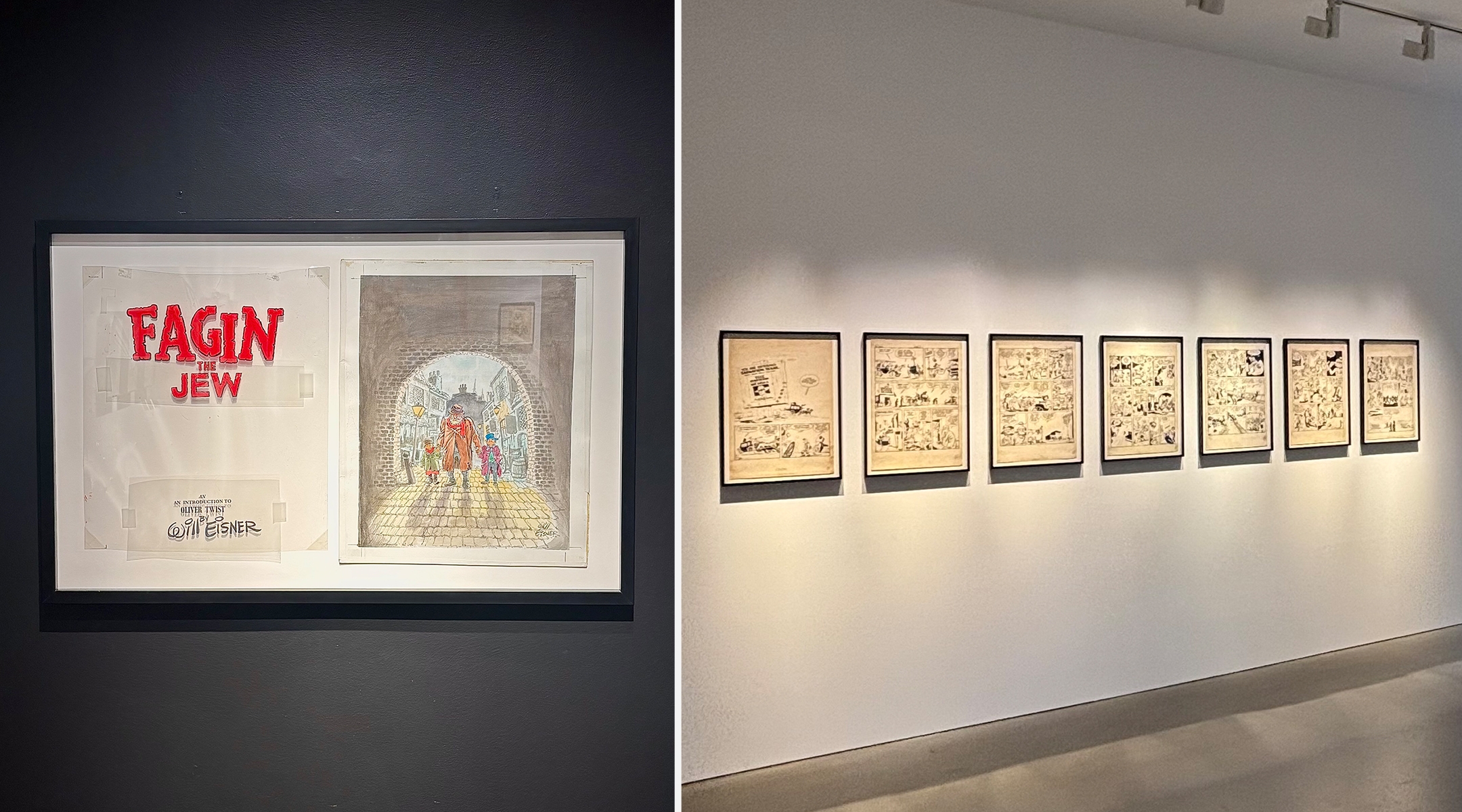An exhibition spotlighting the 60-year career of Jewish cartoonist and writer Will Eisner, considered the father of the graphic novel, will be on view in New York City starting Thursday evening.
A retrospective of the comic book pioneer’s work will be displayed at Chelsea’s Philippe Labaune Gallery (534 West 24th St.), which claims to be “the first contemporary art gallery in the United States specializing in high-end narrative art and illustration,” through March 8.
Eisner, who showed an interest in and talent for drawing at a young age, was born in Brooklyn in 1917 to Jewish immigrant parents. As a student at DeWitt Clinton High School in the Bronx, Eisner created illustrations for school publications, and in 1936, his friend Bob Kane — a fellow Jewish cartoonist who would go on to co-create Batman — encouraged Eisner to enter the then-burgeoning comics scene.
The gallery show will spotlight 79 original works from Eisner’s prolific career, including pieces he created while serving in the army during World War II, selections from “The Spirit” — a comic about a masked crimefighter that launched in 1940 — as well as from “New York: The Big City,” his collection of vignettes about NYC life.
In addition, a nearly complete sequential presentation of “The Super” — one of the stories that constitutes Eisner’s magnum opus, “A Contract With God and Other Tenement Stories” — will be on display. Considered by insiders to be the first graphic novel, the stories revolve around the poor Jewish residents of a Bronx tenement building.
“Eisner was committed to fighting anti-Semitism on all levels,” according to our colleagues at My Jewish Learning, “both in his own life and on a greater social level.”
Eisner’s commitment to fighting anti-Jewish sentiment was made clear in his final projects, including 2003’s “Fagin the Jew,” which retells the story of Charles Dickens’ miserly Jewish character from “Oliver Twist” from Fagin’s point of view.
“In Eisner’s version, Fagin grows up in London’s Ashkenazi communities, forced into crime by cruel fate and crueler prejudice,” according to a Publishers Weekly review.
Just prior to his death in 2005 at 87, Eisner completed “The Plot: The Secret Story of the Protocols of the Elders of Zion,” which documents the making of the infamous hoax about a Jewish plot to take over the world, which was first published in Russia in 1903.
As a press release from the gallery states, “this survey of work showcases Eisner’s
unparalleled influence in shaping comics as both an art form and a powerful medium for graphic storytelling.”
Eisner’s work influenced myriad Jewish creatives, including Art Spiegelman, whose semi-autobiographical graphic novel about the Holocaust, “Maus,” won the Pulitzer Prize in 1992.
The Will Eisner retrospective will be on view at Philippe Labaune Gallery (534 West 24th St.) through March 8. An opening reception will be held at the gallery on Thursday, Feb. 13 from 6 p.m. to 9 p.m.
The New York Jewish Week brings you the stories behind the headlines, keeping you connected to Jewish life in New York. Help sustain the reporting you trust by donating today.





